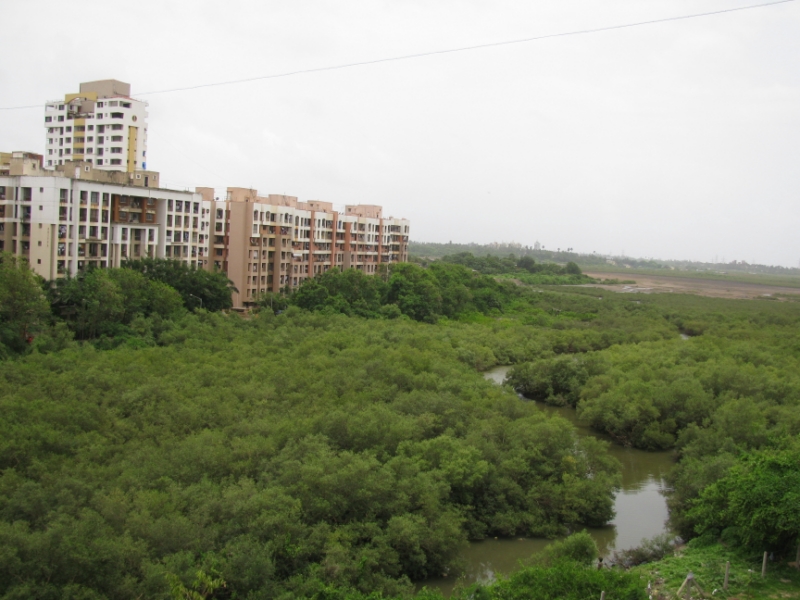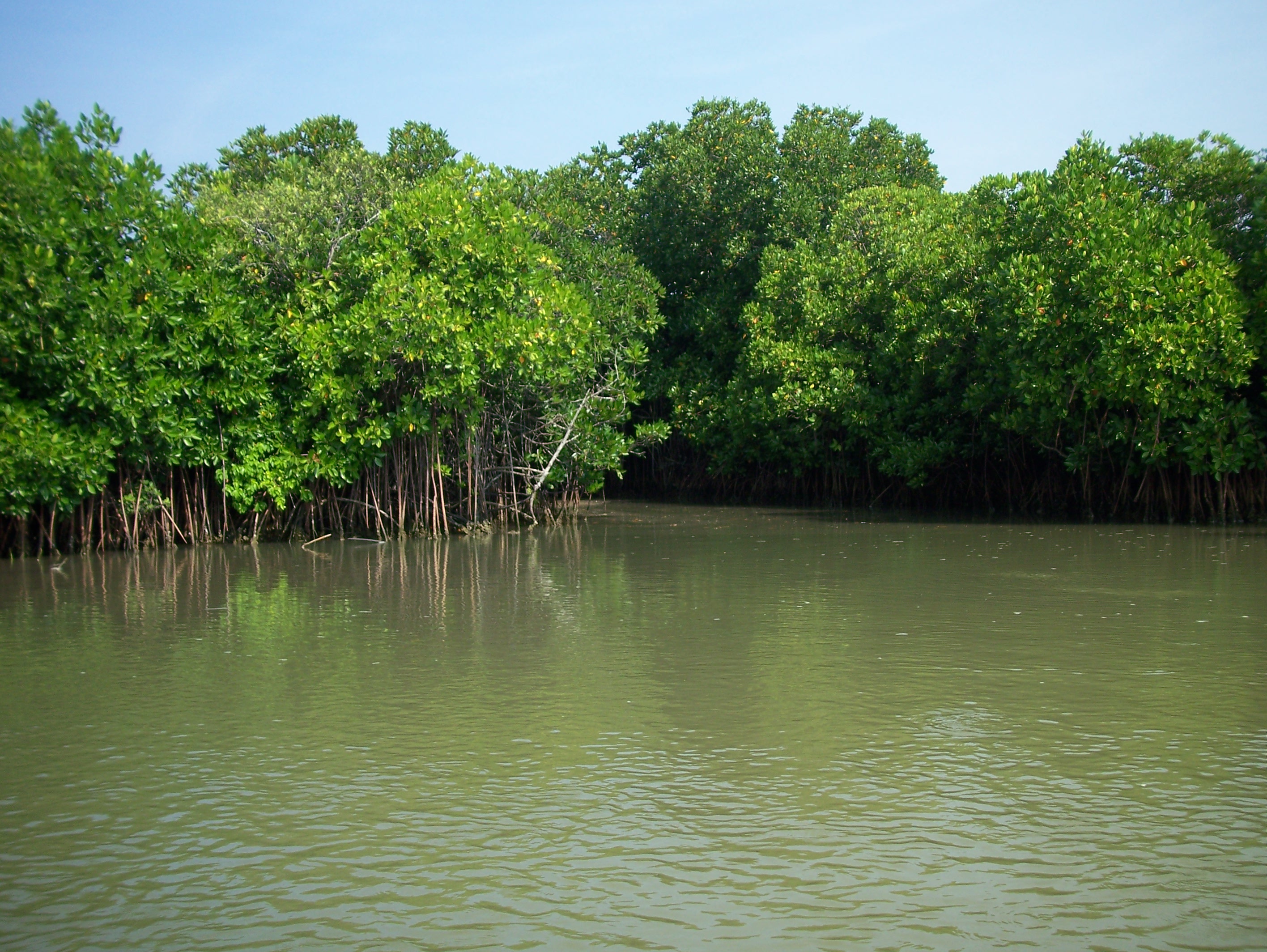Mumbaikars Choose Mangroves Over Sewage Plant, Join Hands To Save Them!
The project will transplant 87 acres of mangroves from Malad to Thane, costing Rs 2,000 crore.

In March 2018, Mumbai newspapers carried a report saying that the State forest department has given its nod allowing the BMC (Brihanmumbai Municipal Corporation) to transplant close to 87 acres of mangrove from Malad to Thane, to make way for the Malad Sewage Treatment Plant (STP). The project is expected to cost Rs 2,000 crore.
This sent shock waves among environmentalists and citizens alike. Mumbai has been facing the wrath of monsoon floods year after year. People the world over have realised that the more one depletes mangroves, the more unsafe the adjacent land becomes.
In the past, mangroves on a large stretch of Mumbai’s coastal land have been acting as a buffer against the natural calamity. But in the guise of development, this precious eco-system is getting eroded.

“Because of our long stretch of mangroves, the tsunami that affected Chennai coastal line in 2004 or even the recent cyclone Ockhi in 2017 which destroyed many coastal areas in South India and Srilanka, didn’t affect us. We have decided that we won’t allow anyone to destroy our mangroves,” state Shweta, Gautami, and Jhanvi Hule, the fisherwomen of Vengurla, Sawantwadi in Maharashtra who have formed a Swamini self-help group of women. They operate a mangrove safari for visitors of the area and fiercely protect their mangroves.
But Mumbai citizens, busy in their daily struggles, seem to have become apathetic to this announcement by the BMC.
“No doubt treatment of sewage is one of the most urgent needs of this burgeoning metro. But relocating mangroves to reclaim the land isn’t the solution at all, as the existing sewage plants in different parts of the city aren’t functioning to even 50% of their capacity. But we will keep an eye on the relocation process to see how successful it will be. Till now, the relocation of the mangrove hasn’t been done properly,” says a very concerned Debi Goenka, an environmentalist and founder member of CAT (Conservation Action Trust). Goenka has led many campaigns to protect the natural environment and to save mangroves.
Also Read: Mumbai Society Transforms Land Lost to Sewage channels Into a Lush 10000 sq ft Garden
The importance of mangroves, a large group of trees and shrubs habituating the coastal inter-tidal zones, is recognised by UNESCO. To propagate the urgent necessity of saving this innocuous cluster of trees, since 2015, July 28th is being observed as the International Day for the Conservation of the Mangrove Ecosystem.
The world body underlining the importance of mangrove ecosystem states, “Mangroves are a unique, special and vulnerable ecosystem, providing by virtue of their existence, biomass and productivity, substantial benefits to human beings, providing forestry, fishery goods and services as well as contributing to the protection of the coastline and being particularly relevant in terms of mitigation of the effects of climate change and food security for local communities.”
Mangroves found in the tropical regions are found in 123 nations and territories. Finding mangrove forests is very rare. The world’s biggest mangrove forest is at Sundarbans, on the delta of river Ganga between West Bengal and Bangladesh.
Pichavaram mangrove in Tamil Nadu is the largest mangrove forest in India.

But with all this, according to UNESCO data, the entire area of mangroves on planet Earth is hardly 1% of all tropical forests and less than 0.4% of the total global forest estate.
Unfortunately, the importance of this precious gift from nature is not well known to humankind. They disappear three to five times faster than the global forest. According to the World Mangrove Atlas, approximately one-fifth of the world’s mangrove ecosystem has been lost since 1980. However, since 2000, there has been a slight decrease in this damage.
Highly concerned about BMC’s decision, Dr Arvind Untawale, a senior scientist, Mangrove Consultant and the Executive Secretary of Mangrove Society of India, Goa, says, “Replanting of mangroves isn’t possible. The highly complicated root system of mangroves, which spreads over a vast area can never be done properly. Every pneumatophore or the breathing roots of the mangrove can’t be successfully uprooted. The BMC should consult some scientists before undertaking this step!’’
Dr Untawale has been involved in the research and development of mangrove conservations and management process for many years.

Stalin D of Vanashkati, who was earlier associated with the Save The Mangrove Initiation of CAT, says, “The arbitrary decision by the BMC without involving any concerned scientists in this costly affair is wrong. We all agree that there is an urgent requirement for sewage treatment. But if citizens are consulted and asked to treat sewage in every housing society, then this kind of catastrophic step needn’t be taken at such huge cost!’’
Mumbai based NGO Vanashakti, works for the forest, mangrove and wetland protection, besides conducting scientific investigations into local environmental degradation. The NGO aims to make people aware of what is being done to our surroundings and the environment.
Also Read: NGO & School Students Come Together to Clean Mumbai’s Mangrove Forest
All the environmentalists, activists and concerned citizens feel that it’s time for citizens to wake up and save the mangroves. At stake in Mumbai alone are 87 acres of mangroves and the safety of the city against the monsoon fury. Elsewhere too, the destruction is on. This is the Clarion call!
(Edited by Shruti Singhal)
Like this story? Or have something to share? Write to us: [email protected]
Connect with us on Facebook and Twitter. NEW: Click here to get positive news on WhatsApp!
If you found our stories insightful, informative, or even just enjoyable, we invite you to consider making a voluntary payment to support the work we do at The Better India. Your contribution helps us continue producing quality content that educates, inspires, and drives positive change.
Choose one of the payment options below for your contribution-
By paying for the stories you value, you directly contribute to sustaining our efforts focused on making a difference in the world. Together, let’s ensure that impactful stories continue to be told and shared, enriching lives and communities alike.
Thank you for your support. Here are some frequently asked questions you might find helpful to know why you are contributing?


This story made me
-
97
-
121
-
89
-
167











